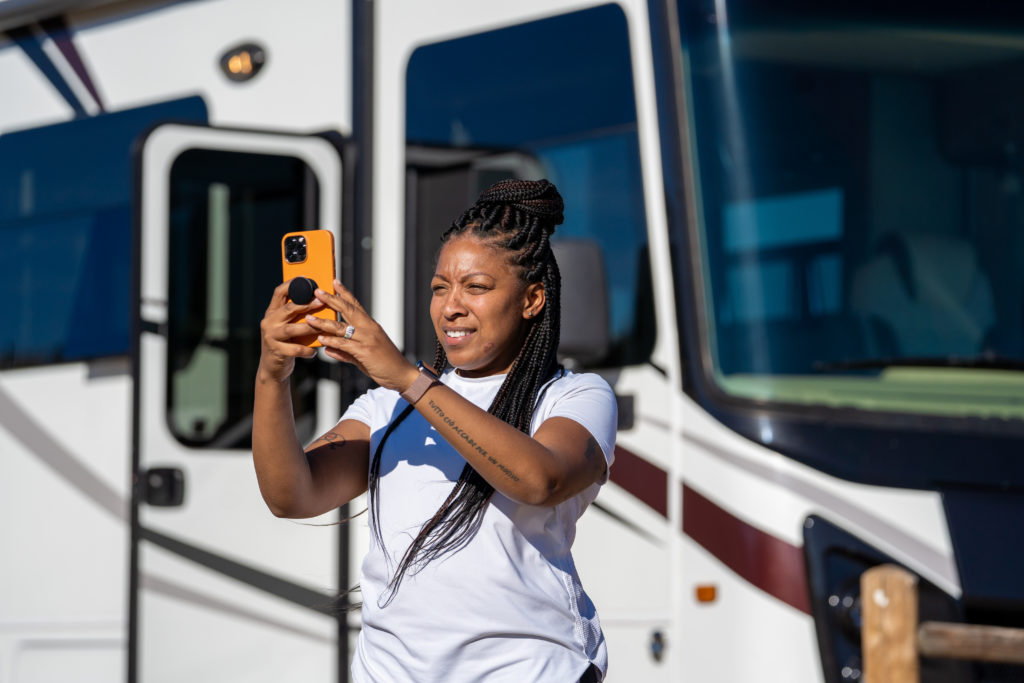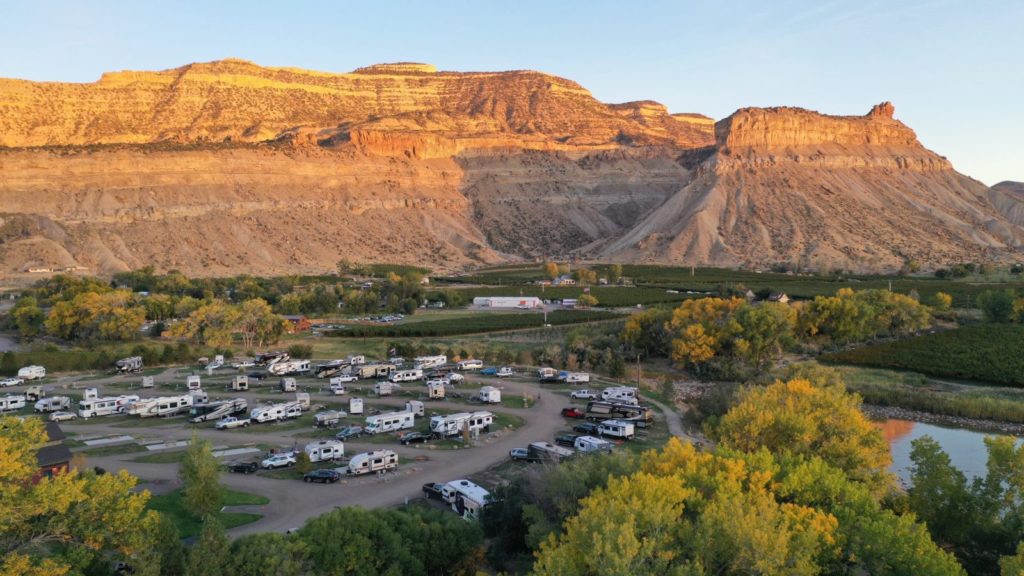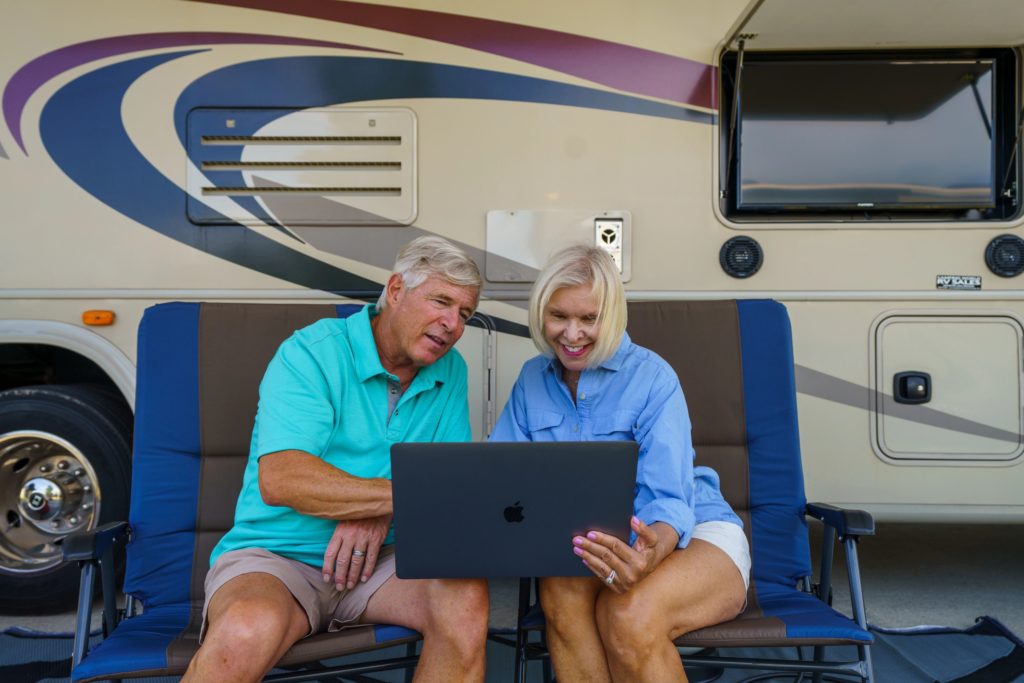You need Wi-Fi at your RV park.
Due to the pandemic, nearly 42 percent of the American workforce is currently working remotely. And by 2025, an estimated 22 percent of Americans will work remotely for good.
When it comes to camping, there has been a huge spike in popularity as a result of the pandemic. Some camping and glamping booking services were 400 percent busier than the same time last year.
With the rise in remote work, Americans are camping more often and staying longer—if they have decent Wi-Fi.
Which means if you don’t offer workable internet at your campground, you’re missing out on business.
The value of having campground internet.
According to outdoor internet expert Doug Rafferty, “Wi-Fi at an RV park is a MUST.”
Doug and his wife are full-time RVers and he’s been providing campgrounds like Charlie Brown with internet for years. According to him, successful campgrounds must have decent Wi-Fi and parks won’t continue to survive without it.
When it comes to bandwidth at an RV park, Doug says “the average campground just doesn’t have it right,” and that “Campgrounds will go out and spend $20k-$30k to build out a campground” but they often fail to invest in internet, and have terrible bandwidth as a result.

Our data validates Doug’s point.
In a survey of our own, 71 percent of RVers said that decent Wi-Fi was essential, and one of the most important amenities a campground could provide. We even had a few participants say that a lack of decent Wi-Fi was a dealbreaker, and reason enough for them to stay elsewhere.
Quality internet at your park is one of the most important investments you can make.
Before you decide to set up Wi-Fi.
Setting up the internet at an RV park can be daunting. Doug answered a few of our big questions on what to consider before setting up an internet provider.
How much will decent Wi-Fi at an RV park cost?
On average, you can find a high-speed provider with decent download speeds at around $250 a month. Depending on how rural your campground is, and the level of access to towers in the area, at the most you shouldn’t be paying more than $500 a month.
Should I charge for Wi-Fi at an RV park?
Doug says yes, and that “people are more open to it than before.”
A 2018 poll showed that 66 percent of guests would be willing to pay a daily rate for quality internet. There will be people who want to opt out, but as more and more millennials become full-time RVers, it is likely that paying extra for premium service will be expected.
It’s important to note that if you are charging extra for Wi-Fi that it should be high-speed access.
What if we’re a 100 percent leisure park? Do we still need good internet?
According to our survey, campers expect Wi-Fi that works at their campsite. They don’t expect blazing fast internet speeds, but they do want to be able to check email, load webpages, and share files.
Can I just offer Wi-Fi in the clubhouse instead of throughout the campground?
While working professionals would take advantage of an ethernet connection from the office, Doug found that “on average, a family will have two to three devices operating at the same time (per site).” Best practices suggest you should still have a signal strong enough to accommodate anyone throughout the park.
Best practices for Wi-Fi at an RV park.
Map out your campground.
Having a clear layout of your park will enable you to find all of the potential obstructions to a quality signal (trees, concrete, metal buildings, etc.) as well as the best and most central location for your router. A clear visual of the park will show you what to prioritize.

Invest in a quality wireless router.
When it comes to purchasing a wireless router, you’ll likely want to start with one labeled as Dual-Band, since Single-Band will be competing with bluetooth and cell phones, causing a greater amount of interference to your signal (and more campers complaining that the internet isn’t working).
If at all possible, put your wireless router or access point wherever it can have the widest and most unobstructed reach from buildings and trees, as these can all tamper with your signal.
Generally speaking, the center of your campground is probably the best place, pending any concrete or metal from nearby buildings.
When it comes to bandwidth, Doug says that campers don’t expect anything blazing fast, but that you should still have an average download speed of 5-10 mbps per site.
Doug said that even for his larger parks (100+ sites) this has been the perfect range, as there’s never a time where everyone will be online at once. A router that lists 802.11ac technology should serve you just fine. This will accommodate guests whether they need to work remotely or just stream Netflix.
To make your decision easier, PC Magazine also has a list of the best wireless routers to buy in 2021.
Strategically add a Wi-Fi range extenders throughout your park.
As mentioned earlier, even if you have a strong connection in your clubhouse or office, guests still want flexibility. One of the participants in our survey mentioned that “when [they’re] working, Wi-Fi and a place to sit down away from the rig is very important.”
Wi-Fi extenders (or repeaters) will boost your internet signal and allow it to reach more of your park. Once you’ve mapped out your park, pay attention to potential dead zones caused by obstructions and place repeaters accordingly to ensure more wireless autonomy for campers.
PC Magazine also has a list of the best range extenders to fit any budget.

Wi-Fi resources.
Business.org came out with a list of the best high-speed providers for small businesses. But if you’re looking to get started with a company that uniquely understands the campground industry, here are recommendations based on who our parks use:
Making a connection
If you’re looking to add value to your campground, adding quality wireless internet is the best place to start. Even if your hope is for guests to disconnect, as more and more working professionals become full or part-time RVers they’ll still need access to Wi-Fi, and won’t stay at your campground if you don’t provide it.
A better online solution.
Looking for a campground reservation software, advertising, and more to go with your park’s Wi-Fi? Good Sam can help. Request a demo today!